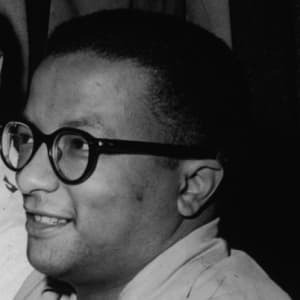
Henry Ford
One of America’s foremost industrialists, Henry Ford revolutionized assembly-line modes of production for the automobile.
Who Was Henry Ford?
Henry Ford (July 30, 1863 to April 7, 1947) was an American automobile manufacturer who created the Ford Model T car in 1908 and went on to develop the assembly line mode of production, which revolutionized the industry. As a result, Ford sold millions of cars and became a world-famous company head. The company lost its market dominance but had a lasting impact on other technological development and U.S. infrastructure. Today Henry Ford is credited for helping to build America's economy during the nation's vulnerable early years and is considered one of America's leading businessmen.
The Model T
Ford introduced the Model T, the first car to be affordable for most Americans, in October 1908 and continued its construction until 1927. Also known as the “Tin Lizzie,” the car was known for its durability and versatility, quickly making it a huge commercial success. For several years, Ford Motor Company posted 100 percent gains. Simple to drive and cheap to repair following Ford’s invention of the assembly line, nearly half of all cars in America in 1918 were Model T's.
Henry Ford and the Assembly Line
In 1913, Henry Ford launched the first moving assembly line for the mass production of the automobile. This new technique decreased the amount of time it took to build a car from 12 hours to two and a half, which in turn lowered the cost of the Model T from $850 in 1908 to $310 by 1926 for a much-improved model. In 1914, Ford introduced the $5 wage for an eight-hour workday ($110 in 2011), more than double what workers were previously making on average, as a method of keeping the best workers loyal to his company. More than for his profits, Ford became renowned for his revolutionary vision: the manufacture of an inexpensive automobile made by skilled workers who earn steady wages.
When and Where Was Henry Ford Born?
Henry Ford was born on July 30, 1863, on his family's farm in Wayne County, near Dearborn, Michigan.
Early Life and Education
When Henry Ford was 13 years old, his father gifted him a pocket watch, which the young boy promptly took apart and reassembled. Friends and neighbors were impressed, and requested that he fix their timepieces too.
Unsatisfied with farm work, Ford left home at the age of 16 to take an apprenticeship as a machinist at a shipbuilding firm in Detroit. In the years that followed, he would learn to skillfully operate and service steam engines and would also study bookkeeping.
In 1888, Henry Ford married Clara Ala Bryant. The couple had a son, Edsel, in 1893.
Henry Ford and Thomas Edison
In 1890, Henry Ford was hired as an engineer for the Detroit Edison Company. In 1893, his natural talents earned him a promotion to chief engineer.
All the while, Ford developed his plans for a horseless carriage. In 1892, Ford built his first gasoline-powered buggy, which had a two-cylinder, four-horsepower engine. In 1896, he constructed his first model car, the Ford Quadricycle. Within the same year, he attended a meeting with Edison executives and found himself presenting his automobile plans to Thomas Edison. The lighting genius encouraged Ford to build a second, better model.
By 1898, Ford was awarded with his first patent for a carburetor. In 1899, with money raised from investors following the development of a third model car, Ford left Edison Illuminating Company to pursue his car-making business full-time.
The Ford Motor Company
After a few trials building cars and companies, Henry Ford established the Ford Motor Company in 1903.
Philosophy and Philanthropy
Henry Ford was an ardent pacifist and opposed World War I, even funding a peace ship to Europe. Later, in 1936, Ford and his family established the Ford Foundation to provide ongoing grants for research, education and development.
In business, Ford offered profit sharing to select employees who stayed with the company for six months and, most important, who conducted their lives in a respectable manner. At the same time, the company's "Social Department" looked into an employee’s drinking, gambling and otherwise uncouth activities to determine eligibility for participation.
Henry Ford and the Nazis
Despite Henry Ford’s philanthropic leanings, he was a committed anti-Semite. He even went as far as to support a weekly newspaper, The Dearborn Independent, which furthered such views. Ford published a number of anti-Semite writings, including 1921 pamphlet, "The International Jew: The World's Foremost Problem.” Ford was awarded the Grand Cross of the German Eagle, the most important award Nazis gave to foreigners, by Adolf Hitler in 1938.
In 1998, a lawsuit filed in Newark, New Jersey, accused the Ford Motor Company of profiting from the forced labor of thousands of people at one of its truck factories in Cologne, Germany during World War II. The Ford company, in turn, said the factory was under the control of the Nazis, not the American corporate headquarters. In 2001, Ford Motor Company released a study which found that the company did not profit from the German subsidiary, at the same time promising to donate $4 million to human rights studies focused on slave and forced labor.
When Did Henry Ford Die?
Henry Ford died of a cerebral hemorrhage on April 7, 1947, at the age of 83, near his Dearborn estate, Fair Lane.
Videos
Henry Ford – Political Involvement(TV-14; 2:04)
Henry Ford – Early Life(TV-14; 2:34)
Henry Ford – Automobile Competition(TV-14; 3:26)
Henry Ford – Anti-Semitism(TV-14; 1:17)
Henry Ford – A Car for the People(TV-PG; 1:29)
Henry Ford – Full Episode(TV-PG; 44:30)
Related Videos
Charles Lindbergh – Pioneering Pilot(TV-14; 1:14)
Andrew Carnegie – Wealthy & Wise(TV-PG; 1:38)
Andrew Carnegie – Youth, Love, & Loss(TV-PG; 2:13)
Andrew Carnegie – Steel & People(TV-PG; 2:22)
Andrew Carnegie – Strike(TV-PG; 2:31)
Thomas Edison – Inventor(TV-14; 4:14)



